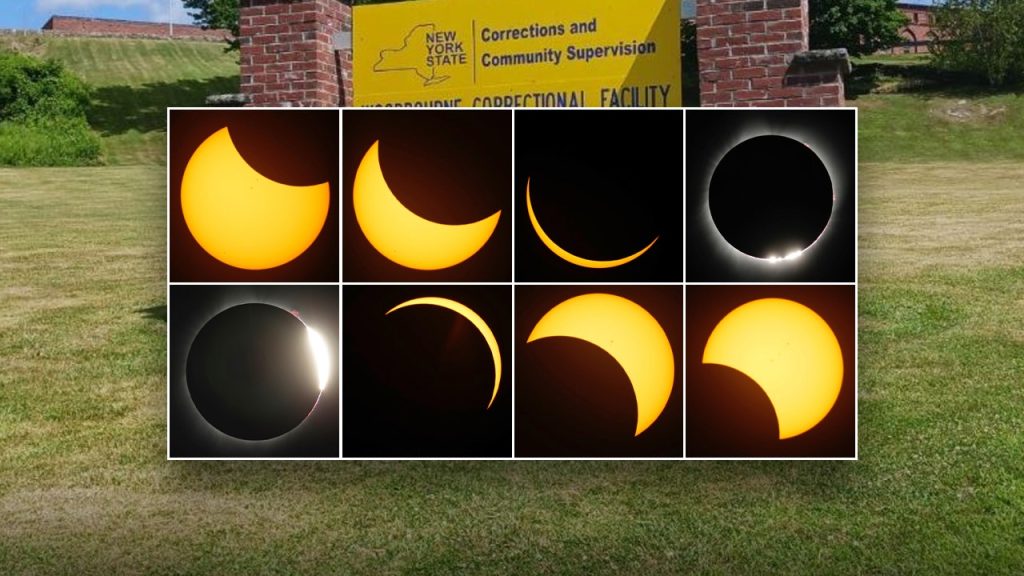Several inmates at the Woodbourne Correctional Facility in New York are suing the corrections department over their decision to lock down prisons during the upcoming total solar eclipse. The inmates, who come from a variety of religious backgrounds including atheist, Baptist, Muslim, Seventh-Day Adventist, and practitioners of Santeria, claim that the lockdown prevents them from practicing their faith during this significant event. The eclipse is a rare natural phenomenon with great religious significance, and the last time it was seen was in 2017, with the next occurrence not scheduled until 2044.
The plaintiffs in the lawsuit, who are serving time for various offenses ranging from rape to murder, argue that the lockdown violates their constitutional rights to practice their faith. The acting commissioner for the state Department of Corrections and Community Supervision issued a memo in March stating that all prisons would operate on a holiday schedule on April 8, the day of the eclipse. Inmates will be returned to their housing units at 2 p.m., and visitations at more than two dozen facilities will be suspended that day.
The inmates are seeking to challenge this decision and assert their rights to participate in religious activities during the solar eclipse. The lawsuit claims that solar eclipses are recognized by various religions as special events that warrant gathering, celebration, worship, and prayer. The inmates argue that the lockdown prevents them from being able to take part in this religiously significant event and that their constitutional rights are being infringed upon.
The Department of Corrections and Community Supervision has stated that they will not comment on pending litigation, but they have made plans to provide solar eclipse safety glasses to staff and inmates at prisons in the path of the eclipse. This will allow individuals to view the celestial event from their assigned work locations or housing units. The inmates involved in the lawsuit are challenging the lockdown and seeking to have their constitutional rights to practice their faith during this significant event upheld.
The legal battle between the inmates and the corrections department continues as the date of the solar eclipse approaches. The inmates argue that the lockdown prevents them from participating in a religious event of great significance, while the department maintains that they are following standard operating procedures for ensuring safety and security during the celestial event. It remains to be seen how this dispute will be resolved and what impact it may have on the rights of incarcerated individuals to practice their faith behind bars.
As the lawsuit progresses, the inmates and their legal representatives will continue to advocate for their rights to practice their faith during the solar eclipse. The outcome of this case could have broader implications for the rights of incarcerated individuals to engage in religious activities while in prison. The legal battle highlights the complexities of balancing security concerns with the religious freedoms of those who are incarcerated, and it remains to be seen how the courts will ultimately rule on this issue.


